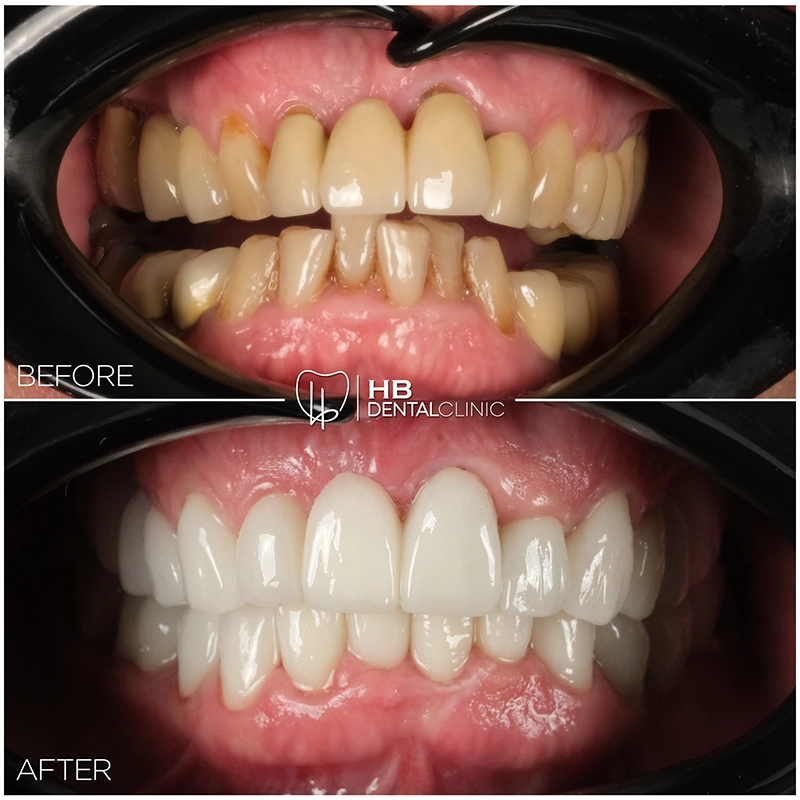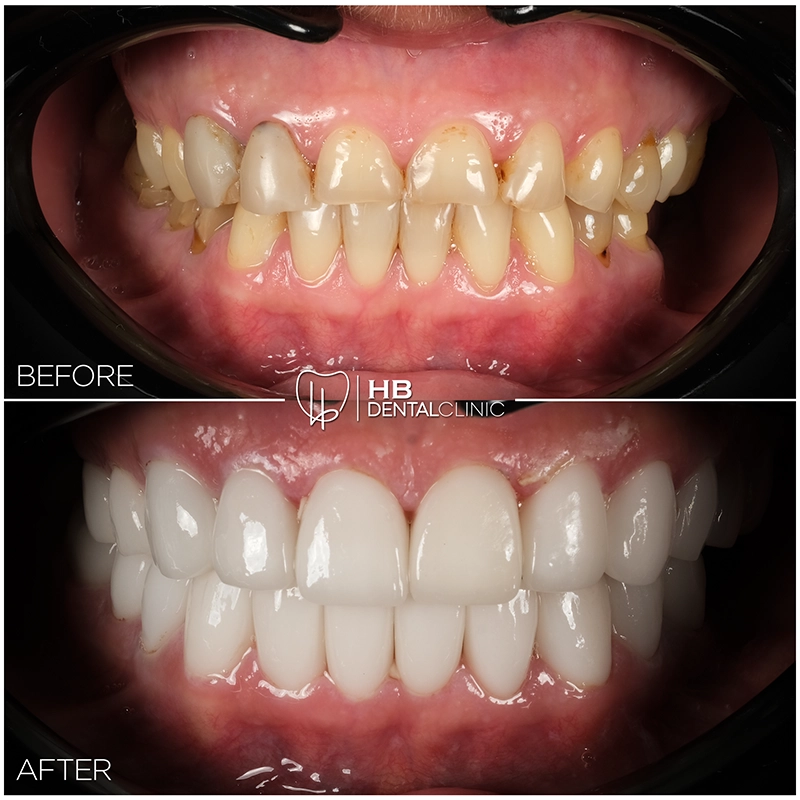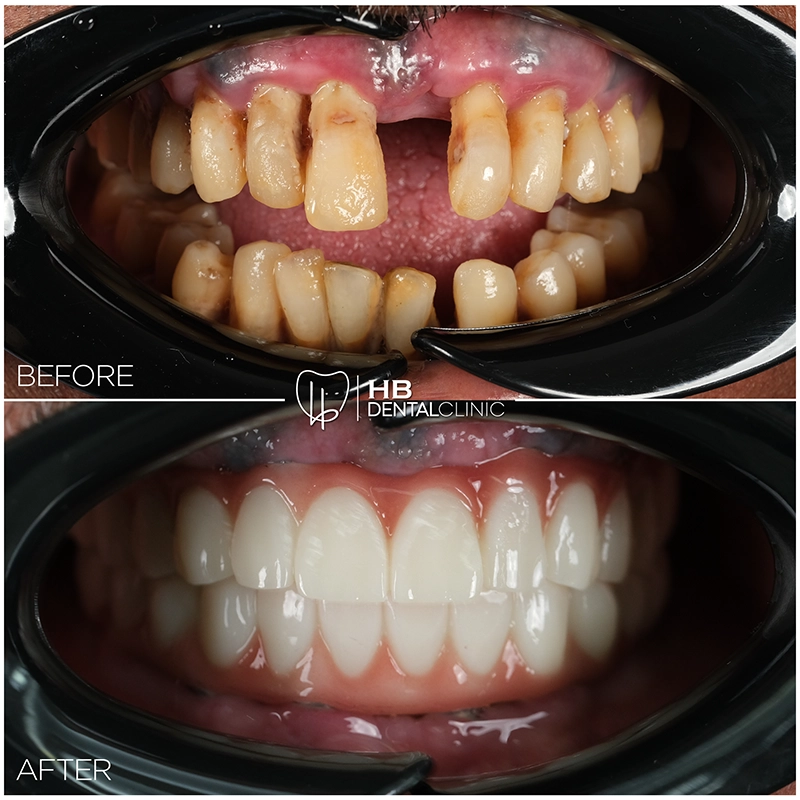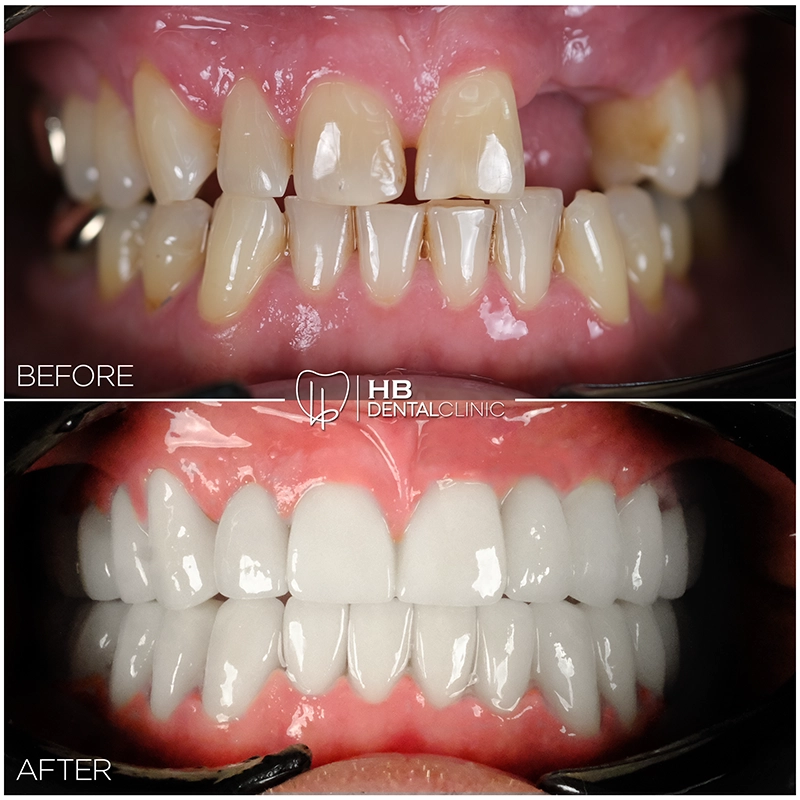
Teeth Whitening
Every smile significantly influences a person’s self-confidence and aesthetic appearance. If you envision a whiter, brighter, and more attractive smile, teeth whitening is the perfect procedure for you! With a customized treatment plan designed specifically for you, we can effectively resolve discoloration issues in your teeth. Through our dental tourism services, we offer quality and reliable treatment in our clinic equipped with top dentists and modern technologies.
What is Teeth Whitening?
Teeth whitening, also known as dental whitening, is a cosmetic dental procedure performed to lighten the color of teeth and achieve a whiter appearance. This procedure helps remove stains and discolorations that accumulate on the surface of teeth, creating a noticeable difference in your smile.
How is Teeth Whitening Applied?
Initial Assessment:
The first step is an initial assessment performed by a dentist at a dental clinic. The dentist will thoroughly examine your teeth and gums and evaluate your suitability for the whitening procedure. Taking into account the current color of your teeth, the degree of discoloration, and your oral health, the most suitable whitening method will be determined.
Teeth Cleaning:
Before the teeth whitening procedure, the dentist will clean your teeth. This cleaning process will remove plaque, tartar, and stains from the tooth surface, enhancing the effectiveness of the whitening process.
Tooth Color Recording:
The dentist will take a record of the initial color of your teeth before the treatment. This record will serve as a reference point for evaluating the whitening results after the treatment.
In-Office Whitening:
The first method, in-office whitening, is a procedure performed by a dentist at the dental clinic. The procedure progresses as follows:
a. They will protect your teeth with a protective layer or apply a gel around your gums.
b. A special whitening gel is applied to your teeth.
c. The whitening gel is activated with a special light or laser, which accelerates the color change of the teeth by enhancing the effect of the whitening gel.
d. After allowing the gel to sit for a specific period, your teeth are rinsed, and the procedure can be repeated.
e. The procedure can be repeated until the desired level of whiteness is achieved.
Who is suitable for Teeth Whitening?
Teeth whitening is generally suitable for individuals with stains or discolorations on their teeth. However, in some cases, teeth whitening may not be recommended or should be done with caution. It may not be suitable for pregnant women, nursing mothers, children under the age of 16, or individuals with excessive enamel wear or decay. Additionally, individuals with gum disease or sensitive gums are advised to consult with a dentist before undergoing the procedure.
What is the Duration of Teeth Whitening Treatment?
The duration of teeth whitening treatment can vary from person to person and depending on the method used. In-office whitening typically takes 1-2 hours and can be completed in several sessions. At-home whitening kits generally show results over a few weeks or longer. Your dentist will determine the most suitable treatment duration based on the condition of your teeth. Remember, teeth whitening may not yield the same results for everyone. The natural color of teeth, their structural characteristics, and the degree of staining can vary from person to person. Additionally, the longevity of the whitening results depends on personal dental care habits.
What should be considered after a teeth whitening procedure?
After a teeth whitening procedure, there are certain points to consider in order to maintain the achieved whitening result:
Limit the consumption of colored beverages:
Colored beverages such as coffee, tea, and cola can cause teeth to stain again. Therefore, try to consume such beverages as little as possible or use a straw to prevent direct contact with your teeth.
Avoid smoking and tobacco products:
Smoking or using tobacco products can cause teeth discoloration and yellowing. It is recommended to stay away from these habits after the whitening procedure.
Practice good oral hygiene:
Brush your teeth regularly, use dental floss, and rinse with mouthwash. This helps keep your teeth clean and prevents new stains from forming.
Follow your dentist’s recommendations:
Your dentist may provide specific recommendations for dental care after the bleaching procedure. Following these recommendations helps maintain the long-term results of whitening and preserve your dental health.
Does teeth whitening cause any side effects?
Teeth whitening procedures are generally safe and free from side effects. However, some individuals may experience temporary sensitivity, gum irritation, or throat discomfort. These effects are usually temporary and resolve on their own after the procedure. If the side effects are severe or persistent, it is important to consult your dentist.
In which cases is teeth whitening not recommended?
Teeth whitening may not be suitable for everyone and may not be recommended in certain cases. It is important to evaluate your suitability by consulting your dentist before the procedure. Situations where the procedure is not recommended or should be performed with caution include:
Pregnancy and breastfeeding: Teeth whitening is not recommended during pregnancy and breastfeeding due to hormonal changes. Consult your dentist to perform the procedure at a safer time.
Sensitive teeth:
If you have sensitive teeth and experience excessive sensitivity, dental whitening may increase sensitivity. In such cases, your dentist will evaluate your teeth before the procedure and may recommend alternative solutions.
Tooth and gum diseases:
Dental whitening may not be recommended in the presence of tooth decay, gum diseases, or active infections. Prior treatment of these issues may be necessary.
Tooth enamel defects:
If you have enamel defects, cracks, or excessive wear on your teeth, the results of dental whitening may be irregular. Your dentist can evaluate alternative treatment options in such cases.
Severe stains and color changes:
Dental whitening may not be effective in cases of severe and persistent discoloration. Your dentist can evaluate more suitable treatment options.
Is teeth whitening a permanent procedure?
Teeth whitening is not a permanent procedure in terms of the achieved whitening result. Over time, teeth may undergo color changes depending on their natural color, personal dental care habits, and consumption of colored foods and beverages. However, regular dental care, limited consumption of colored beverages, and following your dentist’s recommendations can help maintain the whitening result for a longer period.


















